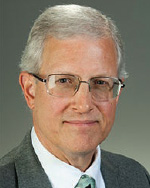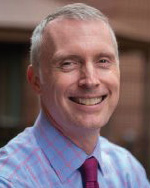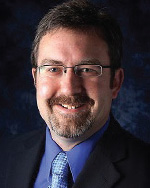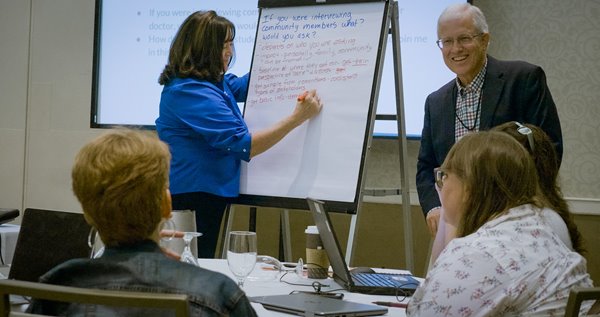A community-based approach to rural health research
 Randall Longenecker |
 Davis Patterson |
 David Schmitz |
Research in rural primary care and health professions education can inform decisions and transform the way we approach rural practice. Providing opportunities for medical students and health professionals to collaborate, share information, and find solutions is essential to the future of rural health.
The Collaborative for Rural Primary Care, Research, Education, and Practice (Rural PREP) is dedicated to making research more accessible through its community of practice activities. “We’re focused on creating a platform for the exchange of ideas, including the work of our students, in a contextual way,” explains Davis Patterson, PhD, Rural PREP project director, University of Washington research assistant professor of family medicine, and Washington, Wyoming, Alaska, Montana, Idaho Rural Health Research Center deputy director.
Rural PREP programs bring people together in a community of practice around education, training, and research. “It’s an opportunity for engagement with community members, state office officials, rural community members, students, faculty, and researchers,” says David Schmitz, MD, Rural PREP dissemination lead and University of North Dakota School of Medicine & Health Sciences chair of family and community medicine.
The purpose of Rural PREP is to promote and disseminate research around primary care and ultimately prepare professionals for rural practice. “Students who are engaged in research become invested in rural health, and the more time spent in a rural place – physically and metaphorically – the more likely students will end up in rural practice,” says Randall Longenecker, MD, Rural PREP associate project director, Ohio University Heritage College of Osteopathic Medicine professor of family medicine and assistant dean for rural and underserved programs, and RTT Collaborative executive director.
An innovative studio
Rural PREP’s Design and Dissemination Studio (DDS) is a community of practice event that gives community members the chance to participate in the design of research and help interpret and disseminate the results. The process produces research that’s culturally relevant and accessible to those who stand to benefit.
“For every DDS we’ve done, different studies have been presented, and our presenters and participants have gained valuable insights. The person who’s doing the research comes away with a lot of new ideas about how they can improve their work and make it more engaging and relevant, something that can have an impact on the problem that they’re trying to solve or rural health issue they’re working on,” Patterson says.
“We talk about the best ways to disseminate the research findings, whether that means publishing it in a journal or many other mechanisms. That is the power of community engagement – looking at how the findings of the research can have the most impact so we can work together toward a solution,” Schmitz says.
Integrating student microresearch
Microresearch funding is made available to students or residents training for rural primary care. Rural PREP provides multiple awards of up to $4,000 for students to investigate a question that’s important to them. You can learn more about Rural PREP’s microresearch program and see examples of current student projects at ruralprep.org.
Paulius Mui, a medical student at the Virginia Commonwealth University School of Medicine in Richmond, Va., received a microresearch grant to investigate how rural communities are affected by the loss of a physician. His study captures the concerns of rural residents about their local physician supply and explores the nonclinical roles of physicians and the impact of these physicians on community life at large.
“Paulius is a very motivated, passionate student who wants to make a difference. He wants to do that not only in providing good care for his patients, but also by helping address some of the problems that rural communities face in providing care to patients. This opportunity through microresearch allowed him to deepen the understanding of what he can do as a leader in his community and in a larger sense as well,” Patterson says.
When the National Organization of State Offices of Rural Health held its regional meeting in Charlottesville, Va., in June, Rural PREP’s DDS provided a pre-conference opportunity for participants to collaborate with a medical student on a timely topic in rural primary care.
Community stakeholders shared concrete ideas from their experience working in rural communities. They were able to help Paulius with suggestions about how to grow his project into a larger initiative and gain a deeper understanding of challenges related to recruiting and retaining rural health professionals.

Research is for everyone
Patterson believes that making real change starts with getting students and stakeholders together to work on solutions in rural health. “It’s about engaging in activities designed to engage others so we can make change in other levels. That means engaging everyone who has a stake in rural health, and primary care has an essential part of that,” Patterson says.
Longenecker emphasizes the need to demystify research so it can be effective on a larger scale. “Many folks – researchers and non-researchers alike – think of research as the specialized domain of expert researchers. The idea that it can be a collaborative task seems foreign to people, and we’re trying to change that.”
Schmitz agrees that shifting away from a top-down approach toward a grassroots effort in research is the way of the future. “It struck me when we did our DDS in Charlottesville, the participants came in thinking they wouldn’t have much to contribute. But by the end of the session, it was rewarding to hear them say they had contributed in meaningful and sometimes unexpected ways. We’re out there to help people realize that they have a very important role to play in research and health training – even if they’re not researchers,” Schmitz says.
Longenecker adds, “Engaging nontraditional stakeholders is key to the work we’re doing. Everyone can play a role – health professionals, government officials, students, and community members.” In the end, a community-based research project that draws on multiple perspectives produces better research, more informed researchers, and more relevant findings.
Add your voice
You can be part of the important work happening now through Rural PREP programs. “We encourage everyone to embrace education, training, and research as a pathway to rural health and a more robust rural workforce,” Longenecker says.
Join us in helping the next generation of rural health providers prepare to solve the problems that are too common in rural America. Learn more about participating in microresearch, a DDS, or a webinar by visiting ruralprep.org.
